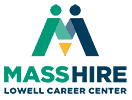Building Your Résumé
March 4 @ 10:00 am - 11:00 am
5 Steps to Reignite Your Job Search
March 5 @ 10:00 am - 11:00 am
Interviewing 101
March 5 @ 2:00 pm - 3:00 pm
Crushing Stereotypes: The Power of Mature Workers
March 9 @ 2:00 pm - 3:00 pm
The Knockout Résumé
March 10 @ 10:00 am - 11:00 am
Just Don’t: The 9 DON’Ts of Job Searching
March 10 @ 2:00 pm - 3:00 pm
Get the Edge: Utilizing Soft Skills
March 11 @ 2:00 pm - 3:00 pm
Avoiding the Online Application Blackhole
March 12 @ 10:00 am - 11:00 am
How to Prepare for an Interview?
I have an interview coming up in a few days. How do you suggest I prepare for answering the questions?
This is a great question. There are many ways to prepare for an interview, but I’ll mention the most important three of them.
First, do your research. You’ve probably heard this many times, and it’s something we mention to all our customers. There are at least two areas to research, the position and company. Let’s start with the position.
Read the job description very carefully to identify the most important skills and requirements for the job. For example, if you identify Lean Six Sigma, Scrum, Critical Thinking, Decision Making and others as important skills; anticipate questions around them being asked in an interview.
Some requirements you glean from the job ad might be, 1) coordinate a team of 5 or more engineers, 2) meet deadlines and stay within budget, and 3) present team success to stakeholders. You should expect to be asked about when you’ve achieved these accomplishments.
Knowing about the company is key to your success in an interview. Not knowing about the company is one of the top five pet peeves of hiring managers. Yet, many job seekers enter an interview without this knowledge.
Simply perusing the company’s website won’t be enough. After all, the content on a company’s website is marketing material. Dig deeper and read press releases and annual reports if the company is public. If you know someone who works for the company, ask them about the company’s culture and some of the problems that exist in the company.
Second, practice answering the questions you anticipate being asked. From doing your research, you should have an idea of what they will be. For example: “Tell me about a time when you had to present your team’s success (or failures) to your stakeholders.”
Write down the questions and the answer to the questions. (We remember facts better when we write them down.) Then rehearse the answers to the point where you feel comfortable.
There are common questions you’ll be asked, such as “Why did you leave your last job?” “Tell us about yourself,” and even, “What is your greatest weakness?” Be prepared for these predictable and somewhat uncreative questions.
If you have someone who can ask you the questions you’ve predicted being asked, that’s a huge plus. Have that person ask the questions, listen to your answers, and observe your body language. Ask for their objective opinion of how you did. The best tool in your job search can be a mock interview. Career Advisors at MassHire Lowell Career Center offer mock interviews which can be recorded.
Third and last, make sure you have questions for the interviewers. There are tons of examples of questions on the Internet. But the best ones are those that you think up on your own. Write down eight questions about the job, four about the company, and three about the competition. That’s 15. When you’re asked, “Do you have any questions for us?” tell the interviewers that you do and ask if you can refer to your list. Most interviewers will allow you to do this.
Following these three suggestions will get you almost to the point where you’re ready for an interview. To learn more about interviewing, go to our events calendar to attend our webinars: https://masshirelowellcc.com/events-calendar.
Job-Search Advice for the Holidays
If you’re like me, you receive holiday newsletters from friends and relatives who you see infrequently. You may look forward to receiving these yearly letters or dread them because they carry on for pages about personal information best saved for a therapist.
For job seekers these newsletters can serve as a great way to network if written properly. You’re sending these holiday networking newsletters to people who care about your welfare and would like to help in any way they could.
Maybe your uncle Jake once worked at Raytheon and still has connections there, or your former roommate from college is doing well for himself in marketing in NYC. Your brother is active on LinkedIn and probably has connections living in your area. He’ll sing your praises for sure. The list of possibilities is long.
Keep in mind that you’re not contacting employers or fellow job-seeking networkers who understand the lingo and nuances of networking for work. You’re reaching out to friends and relatives who know little to nothing about your situation or experience and goals. Thus, the content should be written for the layman.
The Opening
First, wish your recipients a happy holiday. You’ll start light and stay light during the entire letter. This is, after all, the holidays.
“Hello loved ones. It’s been a busy year for the Joneses, and we have a lot to tell you. First let me start by telling you that we have a new puppy; I think that sums up ‘busy.’ Ellen has me on house-training duties, and for the most part I’m doing all right. We’ve named him Messi after the great soccer player. He’s pictured below.”
Body of Newsletter
News about the family is always appreciated.
“I’m proud to say that Tommy Jr. graduated from college and is interning at Fidelity. It helps that he developed a network while in college. I’m proud that he understands the importance of building relationships.
“Claire is enjoying her senior year in high school and much to the chagrin of Ellen and me (did I say that?) is dating a wonderful boy who dotes on her. She’ll be heading off to UMaine and he’ll be going to Florida State (Joy).
“Little Jason is entering high school with intentions of wrestling and playing soccer. He doesn’t seem to be thinking of what he wants to do after high school. He jokes about becoming a professional gamer. (Does that exist.) Really, Jason is a good boy; I’m not too worried.”
Continue writing about what’s happening on the family front, but don’t brag too much. How many times have we read holiday newsletters that sound like a commercial for the all American family? Keep it real. However, don’t write negative content.
The Conclusion
Be upbeat and positive as you tell your recipients about your current situation. You want your friends and relatives to think about how they may help; you don’t want to drive them away with demands or sound needy or despondent. Hearing about your situation will prompt many of them to inquire how they can help you.
“I think you may recall that I’m in transition from my position as director of marketing at my former software company. I enjoyed my tenure there but, alas, the company was sold to a European conglomerate. Please have a great (holiday) and, above all else, remain safe.”
Sign off with your telephone number and LinkedIn URL, if it feels appropriate. Also ask your recipients to write back with news about what’s going on in their lives. Good networking is not only about you; it’s also about those with whom you communicate no matter who the audience is.
In Addition…a postscript could add a nice touch.
PS: This holiday I’ll be serving at our local soup kitchen. I am looking forward to giving to the community by helping those who aren’t as privileged. I’ll be home for Thanksgiving dinner which we’re celebrating with some relatives and close friends.
Some important things to note: don’t ask if anyone knows of a job. You don’t want to put undue pressure on your friends and relatives who are not consumed with the labor market. The best delivery method for your holiday networking newsletter would be email, but a paper letter is also acceptable.
How can I make my résumé stronger?
First, let’s talk about the purpose of your résumé. Plain and simple, it’s to get you to an interview. We have yet to see someone land a job with their résumé alone. It’s the interview that results in a job. With this said, your resume must show the employer what value you’ll bring to the table. Let’s look at five elements of a winning resume.
First, it passes the applicant tracking system (ATS). It’s undeniable that most large companies, many mid-sized, and even small companies use an ATS to store resumes for positions companies are trying to fill. When hiring authorities cull resumes for a job, the ones that rise to the tops are those that contain the keywords, e.g., skills for the job.
Second, it hits hiring authorities over the head with accomplishments. What many people don’t realize is that employers are more impressed by not only what job candidates have done, but also how well they have performed their duties. Accomplishment statements consist of a statement plus a result. For example: Created a sales process (statement) that reduced time of delivery from 10 hours to 45 minutes (quantified result).
Third, it speaks to the employer’s needs. This speaks to the first element of a winning résumé, tailoring your resume to a particular position. Doing this will not only get your resume past the ATS process, it will also give the employer an Ah-Ha moment. You’ve read the job ad and noted ten requirements that are ranked by order of importance. In each section of your résumé, you will address those requirements by priority.
Fourth, it doesn’t exceed 15 years of work history. There are two reason why you don’t want to show more than 15 years of experience on your resume. The first reason is that you don’t want to give away your age. Let’s face it, a few companies will discriminate based on age. Don’t let them have that chance; get to the interview and prove why hiring a mature worker is beneficial to the employer. The second reason is brief but the most important one. What you did beyond 15 years probably isn’t relevant.
Fifth, it needs to be easy to read. The paragraphs on your résumé should be no longer than three or four lines. As people who read many résumés, recruiters will scan the résumés very briefly (six to 20 seconds) to determine if your resume will get a second look. Short paragraphs make the scanning process a lot easier than presenting 10-line paragraphs.
These are five elements of a winning résumé. To learn more about wringing resumes, attend The Knockout Résumé webinar.


